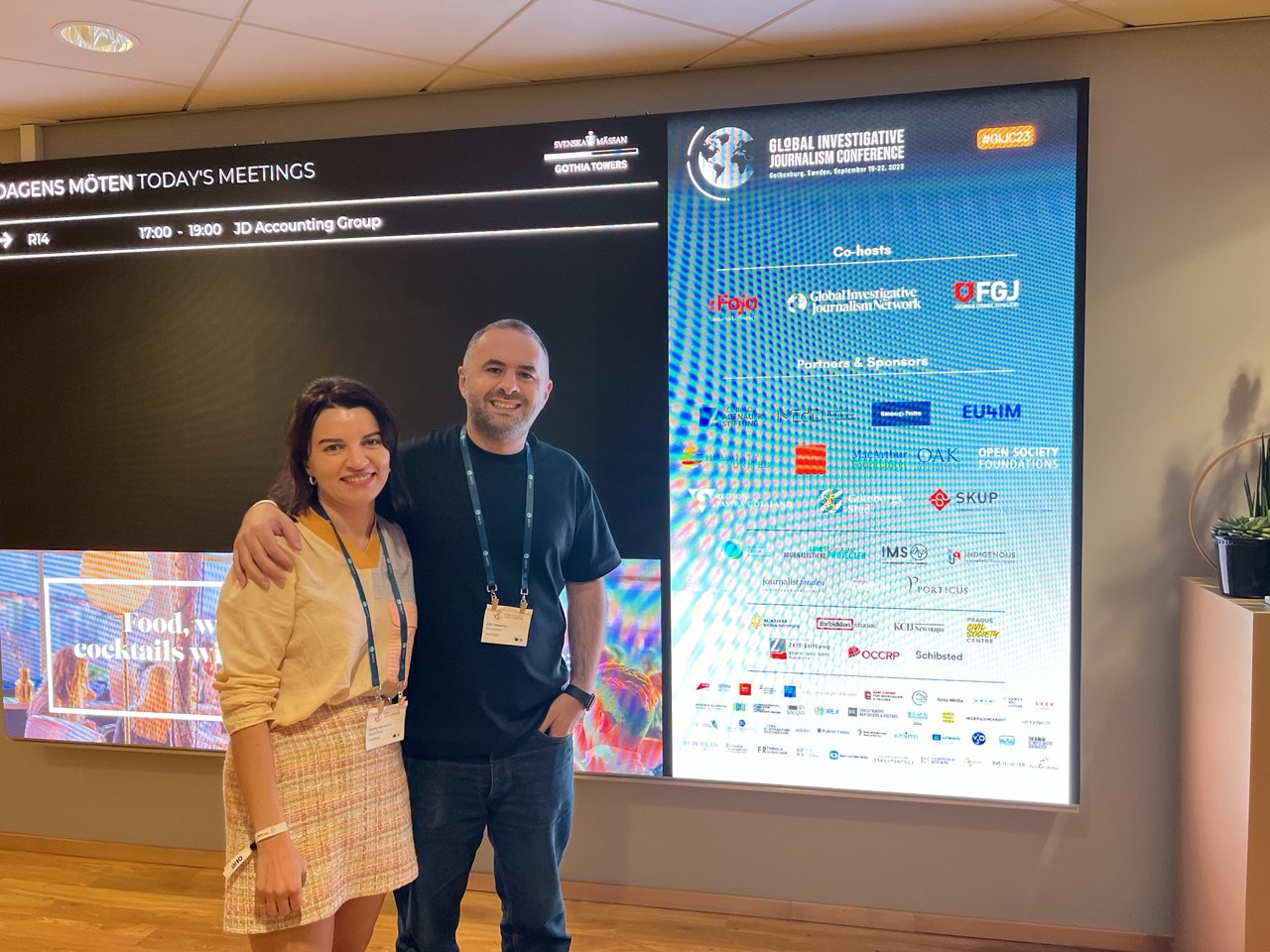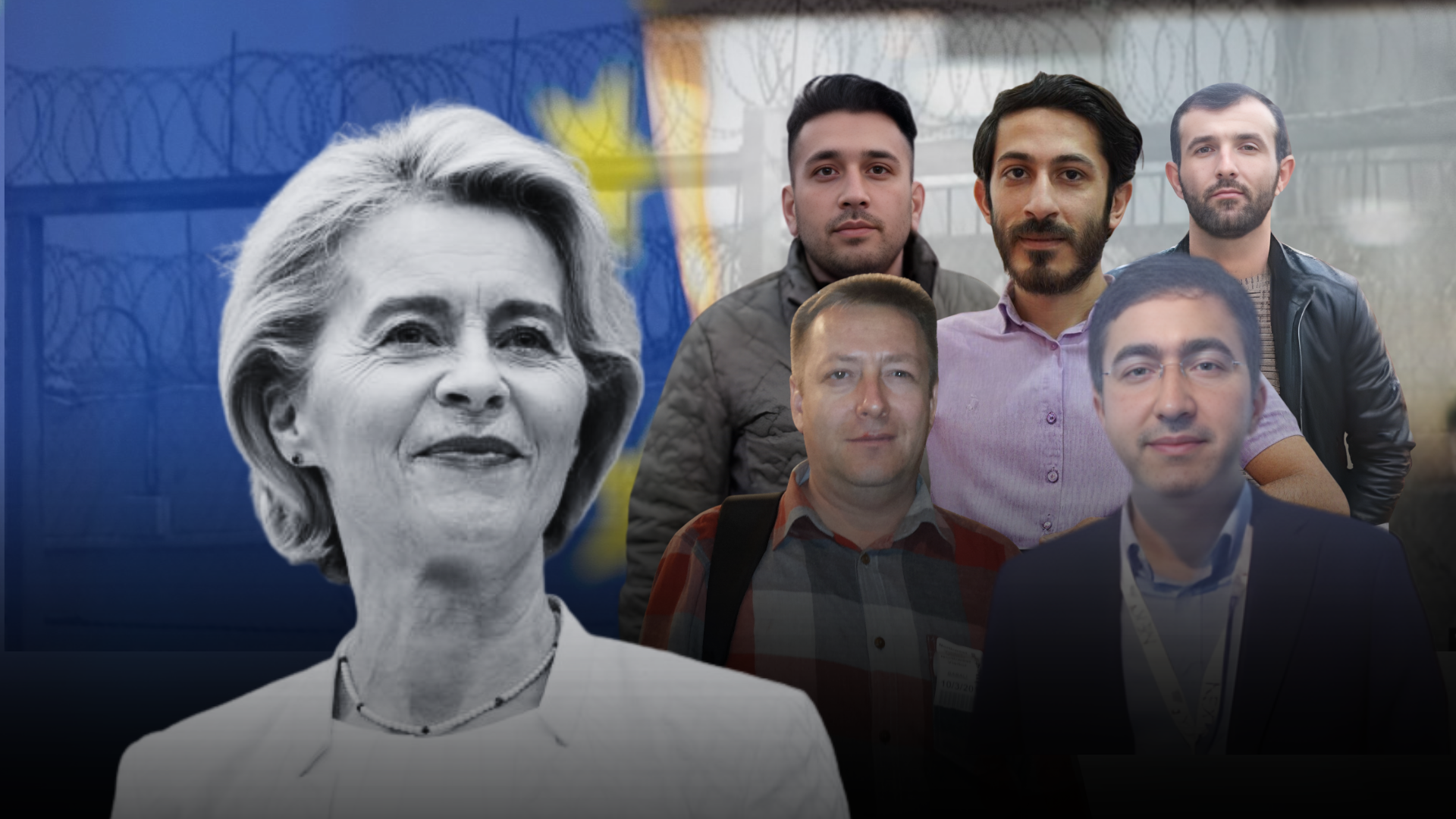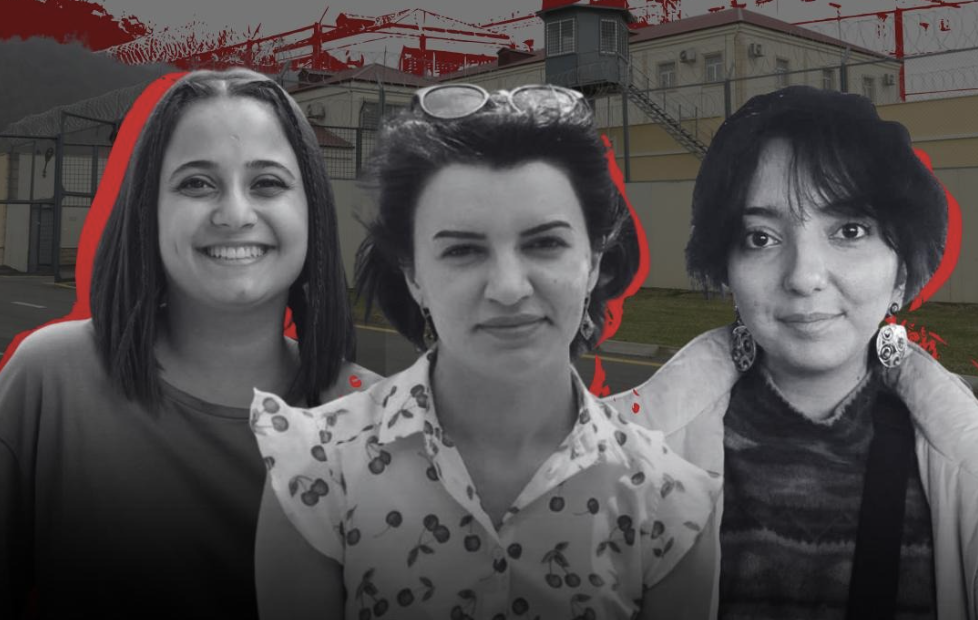At the June 20 court hearing, Sevinj Vagifgizi (Abbasova), the imprisoned editor-in-chief of Abzas Media, delivered her final courtroom statement.
The journalist has been sentenced to nine years in prison.
The full text of Sevinj Vagifgizi’s final statement:
Independent journalism in Azerbaijan has always had to operate in secrecy. That’s been the case since the very beginning of our national press. Those accusing us of “secret activity” seem to forget that Uzeyir Hajibeyli – the composer of our national anthem, a publicist, and an editor – once had to write under 67 different pseudonyms. It was his way of protecting himself from governments that couldn’t tolerate the truth. Uzeyir bey managed to survive Stalin’s repression by using pen names. But if he were alive today, I doubt he’d escape Ilham Aliyev’s mass arrests.
None of the journalists on trial today have used pen names. In fact, many worked without names at all. Because Azerbaijan is a country of nameless journalists — people who can’t proudly sign their names under their own articles, investigations, or videos. Journalists whose names the public only learns after they’re arrested. They’re known not for the stories they publish, but for the stories about their detention.
Because nothing has changed in Azerbaijan—not in the century since Uzeyir Bey’s time, and not now. Independent journalism has always been an underground activity here, not smuggling. Journalists in this country have had to look over their shoulders with every step, wondering if they’re being followed. They’ve spoken cautiously on the phone, unsure if they’re being listened to. They’ve worked from basements or rented apartments. Even during fieldwork, they protected their cameras more than themselves — just to make sure the truth could reach the people. What the government fears is exactly what we’re trying to protect: the truth.
Officials say, “They were not arrested for their journalistic activities.” But they cannot explain how, within a year and a half, all 26 journalists somehow turned out to be smugglers. It was not enough for them to seal the offices of independent media, they even arrested the head of the Baku School of Journalism, closing the doors to young people who aspired to become professional journalists. They did not only imprison us, they also imprisoned those young people’s dreams. So who needs all these arrests and acts of intimidation, and for what purpose?
The investigation materials state that the operation against Abzas Media was launched based on information from a “reliable source.” But who is this “reliable” source? The investigative authority refused to reveal the name in court. But we know who it is. That “reliable source” is President Ilham Aliyev. Because the corruption crimes we were investigating pointed directly at him and those closest to him. First, when we reported on corruption, ruling party members used to say, “We have a problem like Karabakh, talk about that instead.” But when we exposed corruption in the reconstruction of Karabakh, those same people said, “The Karabakh issue is resolved, don’t nitpick.”
While we were in prison, our colleagues living abroad sent a letter to the General Prosecutor’s Office, requesting an investigation into the corruption cases Abzas had uncovered in Karabakh and asking to be informed of the outcome. But months passed, and the Prosecutor’s Office still took no action against the officials involved in the embezzlement.
Even when the Chamber of Accounts office publicly reported that 1.8 million AZN had been misappropriated in Karabakh’s reconstruction, the institution represented by Rauf Malishov did not dare to act. Instead, we, the ones who exposed these crimes are now sitting in the defendant’s seat. Because as Aliyev and his team were treating the state budget like their personal fund, they no longer wanted to hear questions that might curb their appetite. And in this case, initiated on his orders, not even the most basic legal procedures required by profession were followed.
Except for Kekalov, there are no official operation orders for the six other defendants. An operation was carried out, we were arrested, but no such order exists on paper. Now, I want to explain how this whole scheme was orchestrated—through the example of just one person who took part in the operation.
The day I was arrested, as soon as the plane landed in Baku, I was met at the exit by Anar Qasımov, the chief operations officer of the Baku City Police Department. He approached me with a smile and asked, “Do you remember me?” I recalled that a few years earlier, when I lost my phone and filed a police report, the case had been assigned to him. I had been told he was one of the best officers and that my phone would definitely be found. But when he failed to find it, he offered to buy me a new one. I declined and asked him to continue searching for the original. He never found it. He used to say that in such cases, to make the problem “go away,” he’d sometimes buy a phone or laptop out of his own pocket to give to complainants. The department he now represents in the Abzas case continues with the same tactics. This time, however, the complainant is the government and to satisfy them, they planted foreign currency in our office to make the operation look like a success.
The criminal cases against independent media are being handled so carelessly that in the case against Toplum TV, they even included materials related to Abzas Media. In Ruslan Izzətli’s sanction hearing, his name was mistakenly written as Ulvi Hasanli. Later, the judge wrote in the ruling that wherever “Ulvi Hasanli” appears in the prosecution’s submission, it should be read as “Ruslan Izzətli.” Now, in our case too, a similar error has been made. The phrase “Ulvi Hasanli and the organized group connected with him” should actually read “Ilham Aliyev and the organized group connected with him”, because the seven charges brought against us are, in reality, the very crimes we uncovered in our investigations of the president and his circle.
We are accused of working illegally and without registration. But even the chairman of the Media Development Agency sent a letter to the investigators stating that we do not fall under the category of media outlets that require such a license. Yes, we are representatives of the free press. We belong to a generation that entered journalism with the news that Elmar Huseynov had been gunned down on his doorstep for writing critical articles.
And now, this same government thinks it can scare us with prison? What fear can prison hold for those who do not fear death?
When we decided to investigate corruption, Ulvi had only one request of me, if he were arrested, I must not stop investigations, I must continue. We were arrested, but our work continued and because of that, Nargiz was arrested. She chose to attend her final interrogation alone, without a lawyer. When they ordered her detention, she met it with a smile, leaving her captors deflated. Elnara had her prison bag packed even before she was arrested. “Even if they sentence me to eight years,” she said, “I’ll come out and still keep working as a journalist.” Hafiz bey uncovered the scale of corruption during his last interrogation, tracing it from the window of the room where he was being questioned. That was his final investigation before his arrest.
And those who thought our youngest, Kekalov, could be broken were wrong. He refused to accept the statement written in his name by the investigators. There is a symbolic number in his part of the case—1984. It was the password for one of the devices unlawfully seized from his home. Anyone who has read George Orwell’s 1984 will easily spot the parallels between that dystopia and the system now ruling Azerbaijan: a society where everyone feels watched, where privacy doesn’t exist, where one more word disappears from the vocabulary, and people struggle to find a word they’re still allowed to speak. That password, 1984, wasn’t just his code—it was the code of the country. They didn’t realize that when they forced it out of him.
The government wanted to turn us from those who question into those who are questioned. But for the past 19 months, from the head of Baku Pretrial Detention Center to its guards, they’ve had to answer why they are failing to do what the law requires of them.
At a time when almost every floor of the detention center is holding a journalist behind bars, an ironic event takes place: Ilham Aliyev signs a decree to celebrate the 150th anniversary of the national press, founded by Hasan bey Zardabi. Perhaps after imprisoning all independent journalists and shutting down the media, Aliyev feels the need for a grand ceremony. He imagines that after burying the free press, he’ll give a grand funeral speech over its grave. But he forgets that when Zardabi launched the newspaper "Əkinçi", there wasn’t even a state called Azerbaijan yet. In a country where the press was born before the state itself, no matter who is in power, they will never silence its free journalists.
At the end of statements like this, people usually ask the court for freedom. But how can I ask for freedom for seven accused journalists from judges who are not free themselves? Throughout this trial, we were told to address you as “Honourable Judge,” but you never earned that title. Because to be an honourable judge, one must first be just. And to be just, one must first be free. After all, freedom is also a matter of conscience. A person who is not free cannot be moral. I hope one day you’ll tear down the prison walls you’ve built inside yourselves and step into freedom. As for us— we are already free.







